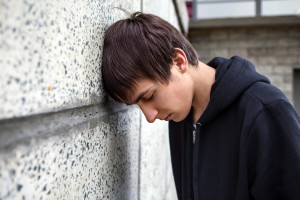 The cycle of addiction has many ups and downs. An alcohol or drug relapse occurs after a person experiences recovery then returns to using their substance of choice. Addiction is a chronic disease, prone to periods of relapse. Triggers and other risk factors may increase the risk of using alcohol or drugs. A relapse is not eventual, or inevitable. Relapse does not have to be part of recovery. Diligent, focused and intentional steps taken by the individual affected by addiction as well as family and friends will greatly help a relapse from occurring.
The cycle of addiction has many ups and downs. An alcohol or drug relapse occurs after a person experiences recovery then returns to using their substance of choice. Addiction is a chronic disease, prone to periods of relapse. Triggers and other risk factors may increase the risk of using alcohol or drugs. A relapse is not eventual, or inevitable. Relapse does not have to be part of recovery. Diligent, focused and intentional steps taken by the individual affected by addiction as well as family and friends will greatly help a relapse from occurring.
Cycle
Animals, including human, have a cyclical nature. Addiction works much the same way in that there are good seasons and difficult seasons in recovery as the cycle of life ebbs and flows. A relapse is a spiralling downward into compulsive behavior and addiction. While not sudden, it occurs over a period of time with the appearance of warning signs. Three stages have been identified:
Emotional Relapse – destructive thoughts may appear which signal a difficult season is emerging in recovery where the individual is feeling challenged to cope with stress, anxiety or other issues which arise. The individual may speak about a desire to use drugs or give an indication of wanting to use.
Mental Relapse – mood swings may appear along with destructive thoughts. Coping skills and healthy habits may seem to slip away slowly including isolation away from others, social activities and a lessening desire to go to work, school or be part of life. Depression or anxiety may emerge.
Physical Relapse – individuals may return to using substances weeks or months following emotional relapse. A return to unhealthy behaviors and environments may occur including old groups of peers or friends associated with the individual in the past during active addiction.
Individuals and family members may believe as long as a substance is no longer being used it is not a threat or danger. The re-emergence of substance abuse can develop late in the relapse process, preceded by the emotional and psychological changes which indicate a downward shift in mood, physical appearance or sense of overall well-being.
Lapses in judgment occur from time to time for everyone. Individuals in recovery are no exception although it could pose more of a threat to health and life. In recovery terms it is considered a “slip,” a momentary lapse which may trigger the thought of losing sobriety which continues the downward spiral into relapse.
Steps can be taken if there is worry or fear about possible relapse. An individual can focus more on the recovery process. Go back to the 12-steps, attend more group meetings and connect with a sponsor or friends. Evaluate what caused the slip or emotional backslide. A therapist, sponsor or friends may be of assistance in doing this as well as making an effort to prevent future recurrences.
Slip ups happen. If you or a loved one is struggling with addiction or fear of relapse, contact Lead Recovery at XXX-XXX-XXXX. Trained therapists and counselors are available to help answer questions and offer support.

